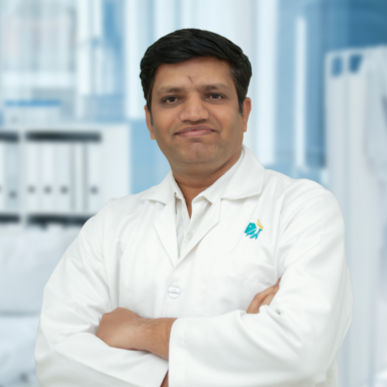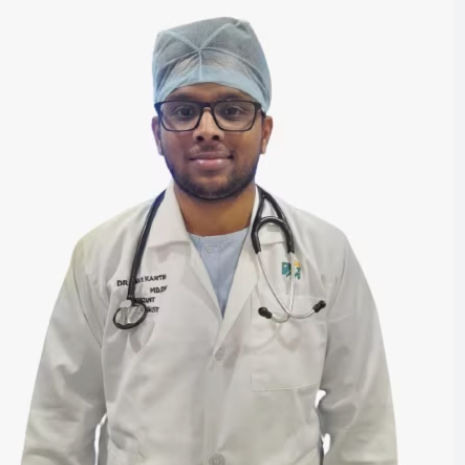Guide to Sudden Cardiac Arrest
Discover everything about sudden cardiac arrest (SCA) including its causes, symptoms, risk factors, emergency response, prevention tips, and FAQs. Learn how to save a life with CPR and AED use.

Written by Dr. Dhankecha Mayank Dineshbhai
Reviewed by Dr. Shaik Abdul Kalam MD (Physician)
Last updated on 13th Jan, 2026

Introduction
Sudden cardiac arrest (SCA) is a terrifying and life-threatening medical emergency where the heart unexpectedly stops beating. Unlike a heart attack, which is a circulation problem, SCA is an electrical malfunction that causes the heart to quiver uselessly instead of pumping blood to the brain and vital organs. Without immediate treatment, death can occur within minutes. This guide demystifies sudden cardiac arrest, arming you with the knowledge to recognise it, understand its causes, and, most importantly, know how to respond. We'll break down the critical differences from a heart attack, explore the risk factors, and walk you through the essential life-saving steps of CPR and AED use that can make the difference between life and death. Knowing what sudden cardiac arrest is could empower you to save a life.
What is Sudden Cardiac Arrest? The Heart's Electrical Storm
Sudden cardiac arrest is the abrupt loss of heart function, breathing, and consciousness. It is triggered by a malfunction in the heart's electrical system, which disrupts its pumping action and stops blood flow to the rest of the body. It's not a heart attack, though a heart attack can cause an SCA.
Think of it like your home's electricity: a heart attack is a plumbing problem—a pipe (artery) gets blocked. Sudden
cardiac arrest is an electrical problem—the wiring short-circuits, and the lights suddenly go out.
Sudden Cardiac Arrest vs. Heart Attack: Knowing the Crucial Difference
- This is the most common point of confusion. Understanding the difference is vital. Heart Attack (Myocardial Infarction): A circulation problem. A blocked artery prevents oxygen-rich blood from reaching a section of the heart muscle. If not reopened quickly, that part of the heart begins to die. Symptoms are often gradual, like chest pain or discomfort, and the person is usually conscious and breathing.
- Sudden Cardiac Arrest: An electrical problem. The heart's rhythm becomes chaotic (ventricular fibrillation), and it stops
pumping effectively. The person collapses immediately, loses consciousness, and stops breathing normally. A heart
attack can be a trigger for SCA, but many other factors can cause it.
Recognising the Signs: Symptoms of Sudden Cardiac Arrest
SCA is swift and brutal. Recognition is not about subtle symptoms but about confirming a medical catastrophe.
The Immediate Collapse; The Most Common Sign
The primary symptom of SCA is a sudden and unexpected loss of consciousness and collapse. The person will not
respond to shouts or gentle shaking.
Warning Signs That Often Go Unnoticed
In some cases, warning signs might occur in the hour before SCA, though they are often missed or misinterpreted.
These can include:
- Chest discomfort or pain
- Heart palpitations or a racing heartbeat
- Unexplained wheezing or shortness of breath
- Dizziness, light-headedness, or fainting
- Profuse sweating
- Nausea or vomiting
If you or someone you know experiences these symptoms, especially in combination, it is crucial to seek medical
evaluation immediately. Consulting a cardiologist online with Apollo24|7 can provide a quick, initial assessment and guide you on the next steps.
The Chain of Survival; Your Immediate Response Saves Lives
The American Heart Association's "Chain of Survival" outlines the critical actions that maximise the chance of survival from sudden cardiac arrest. Every minute without CPR and defibrillation decreases the survival rate by 7–10%.
- Call for Emergency Help: The moment you see someone collapse and are unresponsive, shout for help and dial your local emergency number (like 108 or 102) immediately. Put the phone on speaker so you can start CPR.
- Begin High-Quality CPR Immediately: Push hard and fast on the centre of the chest at a rate of 100–120 compressions per minute. Don't stop unless an AED is ready to use or professional help takes over. Effective CPR keeps oxygenated blood flowing to the brain.
- Use an AED (Automated External Defibrillator): As soon as an AED is available, turn it on and follow the simple
audio and visual instructions. The AED will analyse the heart rhythm and advise a shock if needed. These devices are designed for public use and will not shock a heart that doesn't need it.
Are You at Risk? Key Risk Factors for SCA
While SCA can happen to anyone, even young athletes, certain factors increase risk:
- A prior heart attack or personal history of heart disease
- A family history of sudden cardiac arrest or heart disease
- Previous episode of SCA or fainting of unknown cause
- Smoking, high blood pressure, high cholesterol, and diabetes
- Obesity and a sedentary lifestyle
- Drug or alcohol abuse
For those with known risk factors, managing conditions like high blood pressure and cholesterol is paramount.
Apollo24|7 offers a convenient home collection for tests like lipid profile and HbA1c, making it easier to monitor your
cardiovascular health.
Consult a Cardiologist for the best advice
Can Sudden Cardiac Arrest Be Prevented?
While not all cases are preventable, you can significantly reduce your risk by adopting heart-healthy habits:
- Get regular check-ups to monitor heart health, especially if you have risk factors.
- Eat a heart-healthy diet low in saturated fats and sodium.
- Exercise regularly.
- Avoid smoking and limit alcohol.
- Manage stress through techniques like meditation or yoga.
For individuals at high risk, a doctor may recommend an implantable cardioverter-defibrillator (ICD), a device that continuously monitors the heart rhythm and delivers a shock if a dangerous arrhythmia is detected.
Conclusion
Sudden cardiac arrest is an unpredictable and severe emergency, but it is not always a death sentence. Empowerment through knowledge is our greatest defence. By understanding the causes, recognising the stark signs, and being prepared to act decisively by initiating the Chain of Survival, you become a vital link in saving a life. Remember, your hands and a nearby AED are the most powerful tools available in those first critical minutes. Don't be a bystander—be a lifesaver. Take a CPR course, familiarise yourself with the location of AEDs in your workplace and community, and commit to managing your heart health. If you have concerns about your personal risk factors, consult a cardiologist online with Apollo24|7 for a professional evaluation and personalised advice.
Consult a Cardiologist for the best advice
Consult a Cardiologist for the best advice

Dr. Rajeev Garg
Cardiologist
30 Years • MD (MEDICINE); DIP. CARD ( NIMS ) DNB (CARDIOLOGY) MNAMS, FACC, FESC, FSCAI.
Hyderguda
Apollo Hospitals Hyderguda, Hyderguda
Dr. Praveen Jaiswal
Cardiologist
17 Years • MD(Medicine), DM(Cardiology)
Indore
Apollo Hospitals Vijay Nagar, Indore

Dr. Nirmal Kolte
Cardiologist
8 Years • MBBS MD (Medicine) DM (Cardiology)
Nashik
Apollo Hospitals Nashik, Nashik

Dr. Prashant Adeppa
Cardiologist
10 Years • MBBS, MD General Medicine, DM Cardiology (Armed Forces Medical College)
Bengaluru
Apollo Hospitals Bannerghatta Road, Bengaluru

Dr Ravi Kanth T
Cardiologist
7 Years • MD, DM, PDF
Visakhapatnam
Apollo Hospitals Ramnagar Vizag, Visakhapatnam
Consult a Cardiologist for the best advice

Dr. Rajeev Garg
Cardiologist
30 Years • MD (MEDICINE); DIP. CARD ( NIMS ) DNB (CARDIOLOGY) MNAMS, FACC, FESC, FSCAI.
Hyderguda
Apollo Hospitals Hyderguda, Hyderguda
Dr. Praveen Jaiswal
Cardiologist
17 Years • MD(Medicine), DM(Cardiology)
Indore
Apollo Hospitals Vijay Nagar, Indore

Dr. Nirmal Kolte
Cardiologist
8 Years • MBBS MD (Medicine) DM (Cardiology)
Nashik
Apollo Hospitals Nashik, Nashik

Dr. Prashant Adeppa
Cardiologist
10 Years • MBBS, MD General Medicine, DM Cardiology (Armed Forces Medical College)
Bengaluru
Apollo Hospitals Bannerghatta Road, Bengaluru

Dr Ravi Kanth T
Cardiologist
7 Years • MD, DM, PDF
Visakhapatnam
Apollo Hospitals Ramnagar Vizag, Visakhapatnam
More articles from Carotid Arteries
Frequently Asked Questions
Can a young, healthy person experience sudden cardiac arrest?
Yes, while less common, it can happen due to undiagnosed congenital heart defects, inherited arrhythmia syndromes, or acute myocarditis (heart inflammation).
Is sudden cardiac arrest painful?
The event itself is not painful because loss of consciousness is instantaneous. Any preceding symptoms, like chest pain, might be uncomfortable.
What is the survival rate for out-of-hospital cardiac arrest?
Survival rates are low (often under 10%) but can dramatically increase to over 50% or more if a bystander immediately performs CPR and uses an AED.
Can you have sudden cardiac arrest in your sleep?
Yes, it is possible. This can sometimes be related to genetic conditions or other undiagnosed heart issues.
How is an AED used, and is it safe?
AEDs are designed for public use. You turn it on, and it provides voice instructions. It will tell you where to place the pads and will only advise a shock if it detects a shockable rhythm, making it extremely safe.
